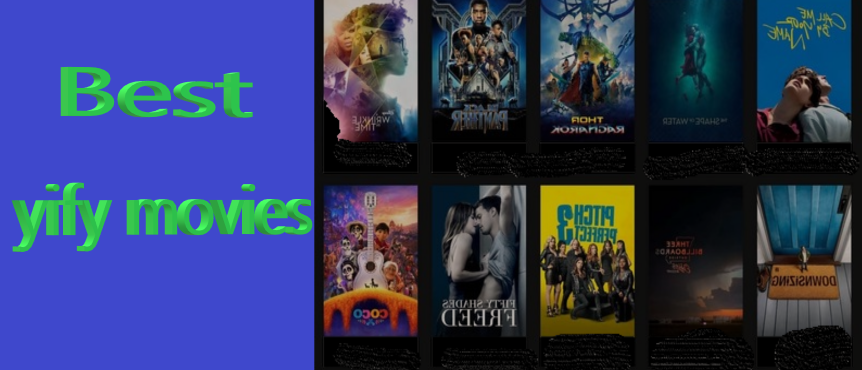YIFY : In the vast ocean of internet piracy, few names have achieved the legendary status of YIFY. For nearly a decade, YIFY Torrents (later rebranded as YTS) dominated the peer-to-peer file-sharing world by offering a massive library of high-quality, compressed movies to users around the globe — all for free.
Known for its consistent file quality, small file sizes, ptak news and reliable uploads, YIFY became synonymous with easy movie access, especially for those with slow internet connections or limited storage. But where did it all begin? And how did it evolve from a humble upload group into one of the most recognized piracy brands on the planet?
This article dives deep into the story of YIFY — from its rise and fall to the clones that live on today, the legal battles it triggered, and the complex ethical questions surrounding online piracy.

- The Origins of YIFY: A One-Man Operation
The story of YIFY starts around 2010 when a New Zealand computer science student, known only by the alias “YIFY”, began uploading highly compressed movies to public torrent sites. His goal was simple: provide a consistent library of downloadable movies that didn’t require massive bandwidth or storage space. Unlike the often messy landscape of early torrenting, where file quality varied wildly, YIFY established a clear identity — small file size, decent quality, and regular uploads.
Within a short time, YIFY’s reputation for quality control and consistency attracted a loyal following. The brand “YIFY” became trusted in the torrenting world — users didn’t need to worry about fake files, viruses, or poor audio. This reliability helped the group’s popularity explode.
By 2011, YIFY launched its own site, YIFY-torrents.com, where users could find the latest uploads without relying on third-party trackers.
- What Made YIFY Torrents So Popular?
At its peak, YIFY was more than just a torrent group — it was a brand. But what set it apart?
a) High Compression, Low Size
YIFY specialized in compressing movies using the x264 and later x265 (HEVC) codecs. A 1080p film that might normally be 4–8 GB was compressed down to 1.5–2 GB with minimal quality loss. This was a game-changer for users with slower internet or limited storage.
b) Consistent Naming & Metadata
Every file was named consistently. Resolution, source (BluRay, WEBRip), codec, and uploader info were clearly labeled. This professionalism set YIFY apart from the chaos of other torrent sources.
c) Regular Updates
New releases were uploaded almost daily. YIFY built a massive library of older and newer films, all following the same quality standards.
d) Minimal Extras
YIFY movies rarely included bloated extras like behind-the-scenes footage or multiple audio tracks — just the main feature, often with subtitles. This kept the file sizes small and efficient.
- Legal Pressure and the Shutdown
For years, YIFY operated under the radar — until the group’s visibility made it impossible to ignore. Hollywood studios and organizations like the Motion Picture Association of America (MPAA) began targeting high-profile piracy operations. In 2015, after years of uploads, the original YIFY group was finally shut down following legal action.
The New Zealand founder was reportedly identified and settled with the MPAA. As part of the deal, YIFY Torrents was permanently shut down, and its domain seized. This marked the official end of YIFY, as the original group ceased operations completely.
- The Aftermath: YTS Clones and Resurrection
Despite the shutdown, YIFY lived on — in name, at least. Several clone sites began popping up within months, using the YTS brand (short for YIFY Torrent Solutions). Some of the most popular today include:
YTS.mx (currently one of the most active)
YTS.lt (discontinued)
YTS.ag (redirected or down)
Others using similar designs and branding
But these sites are not affiliated with the original YIFY team. They’re run by new groups who adopted the YIFY/YTS name and style. Some even began facing lawsuits of their own for continuing to distribute pirated content.
Interestingly, YTS.mx began cooperating with legal authorities in certain cases, handing over user IP logs in piracy lawsuits. This sparked controversy and led to distrust among some torrent users.
- Torrenting Culture: Piracy or Digital Access?
YIFY’s story reflects the larger conversation around online piracy. To some, it’s simple theft — robbing creators of revenue. But to others, it’s about access in a digital age.
a) Global Demand
In many parts of the world, movies are released months late (or never at all). Streaming services are unavailable, geo-locked, or too expensive. YIFY filled a gap where access was otherwise limited.
b) Affordability
Not everyone can afford subscriptions to Netflix, Disney+, Amazon Prime, etc. YIFY torrents allowed users to explore cinema without cost — legal or not.
c) Archiving and Preservation
YIFY made hundreds of rare and old films easily accessible in high quality. While piracy isn’t the ideal method of archiving, it played a role in preserving cinematic history digitally.
- Streaming vs. Torrents: A Changing Landscape
Since YIFY’s peak, the rise of legal streaming services has changed how people watch movies. Platforms like Netflix, Hulu, and HBO Max have reduced the need for torrents — especially in countries with reliable internet.
However, not everyone is onboard:
Geo-blocks still restrict content by country.
Subscription fatigue from multiple services.
Unavailable content not hosted on any platform.
As a result, torrenting remains relevant — and YIFY-style releases continue to be sought after, especially for users who prefer keeping offline copies of films.
- Legal and Ethical Concerns
Downloading YIFY movies is illegal in many countries. Governments, ISPs, and film studios regularly target torrent users. Common tactics include:
Cease and desist letters
Fines and lawsuits
ISP throttling or bans
Using VPNs and private trackers is common to avoid detection, but risks remain — especially with sites like YTS.mx cooperating with lawsuits.
Ethically, the debate continues: Is it wrong to torrent a film you can’t access legally in your country? Is it stealing if the creator isn’t offering the product in your region?
There are no easy answers.
- The Legacy of YIFY
Though the original uploader is gone, the YIFY name lives on, a ghost in the machine of internet piracy. Its impact is undeniable:
Influenced torrent culture with standardized quality
Inspired other encoding groups (RARBG, EVO, etc.)
Made high-efficiency encoding (like HEVC) mainstream
Even today, new generations of internet users search for “YIFY movies” without knowing the full story behind the name.
- Legal Alternatives to YIFY Torrents
If you’re looking for legitimate ways to watch great movies, there are alternatives:
Tubi and Pluto TV (free ad-supported streaming)
Kanopy (free with library access)
Criterion Channel (for classic cinema lovers)
Mubi (curated indie films)
Netflix, Amazon, Disney+ (mainstream content)
Additionally, public domain film archives like Internet Archive and Public Domain Torrents offer movies that are 100% legal to download.
Conclusion
YIFY Torrents was a defining force in the world of digital piracy — a one-man operation turned global phenomenon. While its original creator has long stepped away, the YIFY name endures as both a symbol of accessible entertainment and a cautionary tale about piracy’s legal risks.
In an age of increasing corporate control and content gatekeeping, YIFY was, for many, a rebellion — a way to watch what you wanted, when you wanted, regardless of borders or subscriptions. And while times have changed, the debate over access, ownership, and ethics continues.
Whether you see YIFY as a hero, a pirate, or something in between, one thing is clear: its legacy will continue to echo through the digital halls of the internet for years to come.
Table of Contents
| Important links |
| Read more Delhi news |
| learn Web development from expert |










